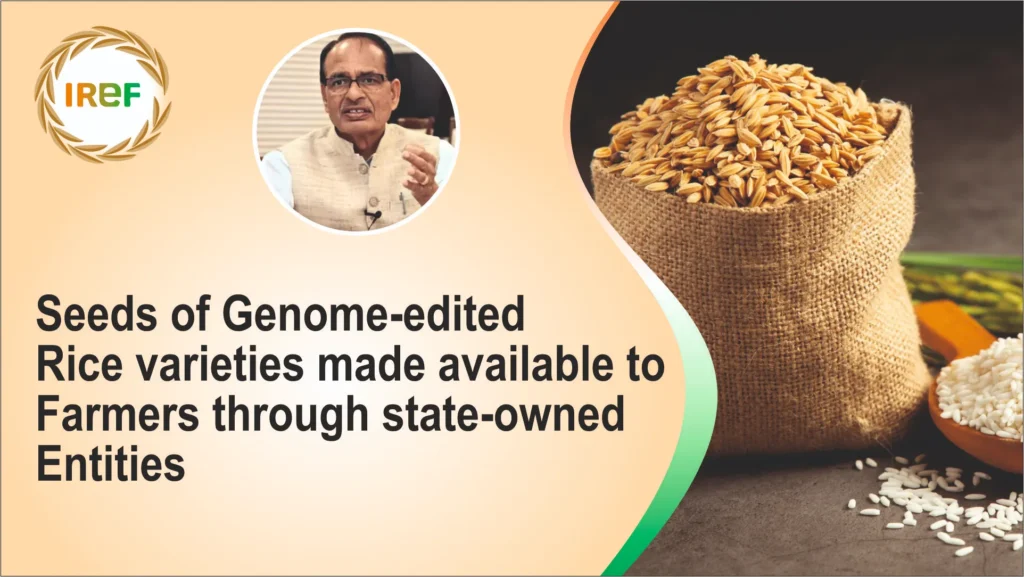The genome-edited rice varieties DRR Dhan 100 (Kamala) and Pusa Rice DST 1, which are high-yielding in nature, resulting from innovative efforts, have been recently unveiled by the Agriculture Minister Shivraj Singh Chouhan in May. Now, the Ministry of Agriculture has announced that its seeds will be made available to farmers through government-owned entities.
“There is no issue of bearing on the seed sovereignty of India’s farming community,” the ministry said amid concerns raised by certain quarters about potential intellectual property rights (IPRs) issues when the genome-edited rice varieties would get ready for commercial release.
Furthermore, it stated: “The seeds of genome-edited rice varieties will be produced and made available by the developer institutions and public sector undertakings such as National Seed Corporation, Bharatiya Beej Sahkari Samiti, etc.” In addition, a group of agricultural scientists had written earlier to PM Narendra Modi by stating the unveiling of genome-edited rice was premature and emphasising the fact that the technology – CRISPR–Cas9 – used for new rice varieties could face IPR claims by the multinational corporations for commercial cultivations.
The Scientists stated that probabilities can put farmers at the mercy of MNCs for the high-yielding seeds, as in the case of genetically modified Bt cotton after its commercial release in 2002. The technology used in developing these rice lines is not their indigenous one, and they will have to procure a license from the foreign intellectual property rights holders, MNCs, for commercial cultivation.
Shivraj Singh Chauhan had revealed two indigenously developed genome-edited rice varieties which can strengthen grain production by 25-30%. Besides this, he said that those were the world’s first genome-edited rice varieties and would help us to fulfil the objective of reducing the area under paddy by five million hectares. These genome-edited rice varieties could mark the beginning of the second green revolution in the country.
Notably, the Ministry of Agriculture has allocated Rs 486 crore for research related to genome-edited rice varieties under numerous projects since 2020.
In 2022, the government had discharged certain types of genome-edited crops from the stringent bio-safety regulations applicable to genetically-modified (GM) crops to ensure wider use of this technology and accelerate genetic improvement of crops in the country.
At present, nearly 30 countries have announced genome-edited crops as non-GMO crops, which are not modified through genetic engineering techniques.
The new varieties are anticipated to replace widely used varieties Sambha Mahsuri and Cottondora Sannalu, grown to cover 9 million hectares in the country. These varieties are suggested for significant rice-growing states such as Andhra Pradesh, Telangana, Karnataka, Tamil Nadu, Kerala, Puducherry, Bihar, Chhattisgarh, Maharashtra, Madhya Pradesh, Odisha, Jharkhand, Bihar, and West Bengal.



